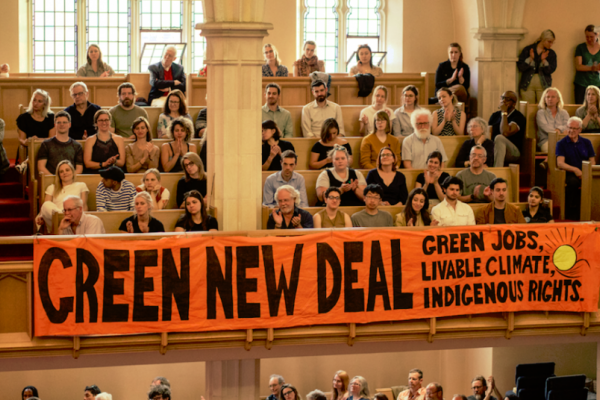Planet of the Humans opens important debate about green capitalism, unlimited economic growth
Planet of the Humans, directed by Jeff Gibbs and produced by Michael Moore, has hit a sensitive nerve with well-established environmental groups. The film, free to watch on YouTube, has exposed them for pushing free market environmental solutions as the only means to save us from runaway climate change.
These environmental organizations depend on large foundations which have made obscene amounts of money from the very international economic system that has brought us to the brink of the global nightmare that confronts us.
These big foundations, or for that matter Western governments and multinational corporations, are not in the business of challenging the global economic system that brought them all their wealth; instead they fund and promote groups whose solutions compliment the free market, rather than challenge it.
Having been involved in the environmental movement for 30 years regionally, nationally and as an international forest campaigner, I have seen many free market solutions that have come to dominate the discourse. These include forest certification, biomass energy schemes, trading forest off-sets and carbon sinks. Now the big push is to commodify nature itself, so free market environmentalists can set up an ecological version of a Wall Street for nature, where it can be bought, sold and traded.
One does not need to name names because we know who these free market environmental groups are. For the most part, they are the groups that get the lion’s share of attention from Western mainstream media, the ones that have slick environmental PR campaigns featuring well-known Hollywood spokespersons, the ones that are invited to sit at the table with corporations or that are courted to attend the World Economic Forum in Davos and the United Nations to represent the movement.
What Gibbs and Moore have done is to demonstrate, to a very large audience, that these groups are the only ones getting significant promotion, funding and legitimization, and therefore have become the only voice of the movement.
Those environmental groups that recognize and challenge overconsumption and unlimited economic growth as the root causes of our planetary ecological problem are generally relegated to the margins and often portrayed as fringe or radicals. This is because the solutions they promote to deal with such roots causes challenge the very underpinnings of capitalism itself.
Planet of the Humans is not without its faults, chief among them the use of outdated data and information to criticize wind and solar technologies. Nevertheless, Gibbs and Moore have opened up an important debate, raising fundamental issues that the film’s critics tend to sidestep. With more than seven million views on YouTube to date, we can hope the debate it has sparked will come to embrace a thorough discussion of the bankruptcy of green capitalism and the need for solutions based on principles of social and economic justice which genuinely challenge overconsumption and unlimited economic growth.
Don Sullivan is a landscape photographer, a former CD collective member, past director of the Boreal Forest Network and served as special adviser to the government of Manitoba on the Pimachiowin Aki UNESCO World Heritage site portfolio. He is a research affiliate with the Canadian Centre for Policy Alternatives Manitoba and a Queen Golden Jubilee medal recipient.










